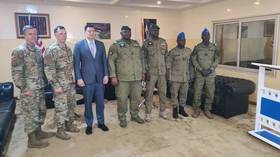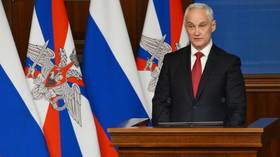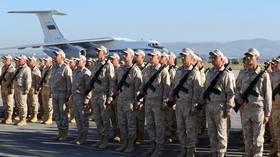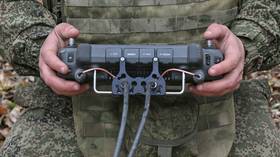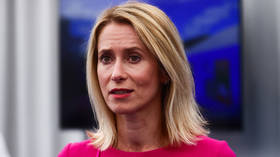EU ending military mission in African state

The European Union’s military partnership mission in Niger (EUMPM) will be discontinued at the end of June, the bloc announced on Monday, citing the “grave” political situation in the West African nation.
The decision comes five months after Niger’s new government, which took power following a coup in July 2023, withdrew from two security agreements with the EU, including the EUMPM.
The military authorities had threatened to revoke any “privileges and immunities” granted to troops under the EUMPM and the European Union Civilian Capacity-Building Mission (EUCAP).
The three-year mission, which began in December 2022, has between 50 and 100 European troops in Niger providing training, logistics, and infrastructure support to forces in the former French colony, in order to strengthen their capacity to fight terrorism.
“By letter dated 21 December 2023, the Mission Commander, Lieutenant-General Michiel van der Laan, notified the Council that the EU personnel of EUMPM Niger had been redeployed to Europe,” the EU said in a press release on Monday.
“On 23 April 2024, the Political and Security Committee agreed that EUMPM Niger should not be extended beyond 30 June 2024,” it added.
Prior to the ouster of pro-Western President Mohamed Bazoum, Niger had been a strategic partner of the West in fighting jihadi insurgents, who had killed thousands and displaced millions in the Sahel region.
Niamey’s military authorities cut defense ties with France and expelled French troops in December last year, accusing the former colonial power of aggression and meddling.
The US also recently agreed to withdraw its troops from Niger by mid-September after the landlocked country canceled a security deal that had allowed about 1,000 American soldiers and civilian contractors to conduct counterterrorism operations there for more than a decade.
The Nigerien government has accused the US of threatening sanctions and attempting to dictate who Niamey’s allies should be.
The EU, which announced restrictive measures against Niger in October 2023 in response to the coup, has repeatedly blamed Russia for the bloc’s declining influence in the Sahel region.
Earlier this year, EU foreign policy chief Josep Borrell said the union faced a dilemma over its presence in the Sahel, particularly in Burkina Faso and Mali, where he claimed Moscow’s influence has increased.
The military rulers in Niamey, Bamako, and Ouagadougou have formed an alliance and repeatedly hailed Moscow as a strategic ally. They have agreed to expand cooperation with Russia in various fields, including defense and energy, after declaring that their governments would only work with partners who respect their nations’ sovereignty.
